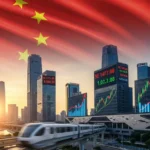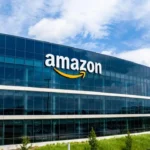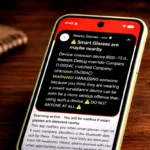Key Points
- Trump’s 25% auto tariffs and broader trade measures hit Japan’s auto sector hard.
- Kyowa Industrial, led by Hiroko Suzuki, struggles to diversify into medical devices, which are now also subject to tariffs.
- Japan’s auto supply chain is deeply exposed, with most Tier 2 or lower firms heavily dependent on automakers.
- Automakers like Toyota and Nissan offer minimal support, pressuring suppliers to contain costs.
Japan’s auto parts industry is once again under pressure from U.S. trade policies, with sweeping tariffs introduced under the Trump administration shaking its foundations. Among the affected firms is Kyowa Industrial, a 78-year-old parts manufacturer led by Hiroko Suzuki, who now faces an uphill battle to diversify into medical devices amid intensifying trade barriers.
The U.S. imposed 25% tariffs on automobiles and broader tariffs on Japanese goods, marking a critical threat to the nation’s fourth-largest economy. Prime Minister Shigeru Ishiba labeled the situation a “national crisis.” Japan’s top trade negotiator, Ryosei Akazawa, is in Washington for further talks.
Kyowa, based in Takasaki, has long been part of Japan’s vast automotive supply chain. The company doesn’t export auto parts to the U.S., but Suzuki fears automakers will demand lower prices from suppliers to offset the impact of tariffs. She began diversifying into neurosurgery instruments in 2016, foreseeing the decline in demand for combustion engine components. However, U.S. tariffs also target medical devices, complicating this pivot.
Suzuki’s experience reflects Japan’s broader struggle. Once a global leader in electronics, the nation is now deeply reliant on its auto industry, a rapidly disrupted sector by Chinese EV makers like BYD and tech-centric brands such as Tesla. Japanese automakers, including Toyota, Nissan, and Subaru, have offered limited support to their suppliers, focusing mainly on cost containment.
Industry insiders and officials warn that the tariff threat may accelerate consolidation among smaller manufacturers. Some, like Toa Kogyo, fear the cost burden will ultimately fall on suppliers, carmakers, dealers, and consumers. Subaru has already raised prices on several U.S. models.
Despite the uncertainty, Suzuki remains hopeful. She recalls her deep ties to the U.S. and urges both nations to resolve their trade tensions. She’s now eyeing new markets in Singapore and Hong Kong, seeking stability outside the American sphere.





